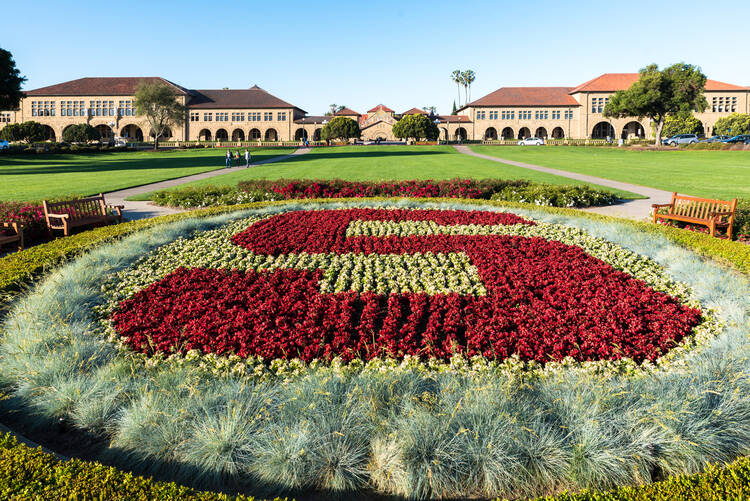WASHINGTON (CNS) -- California's Stanford University will strip the name of 18th-century Franciscan friar, St. Junipero Serra, from some of its properties but keep a street named after him.
Stanford University announced the changes Sept. 13, saying in a statement that the saint, canonized in the U.S. during Pope Francis' apostolic visit in 2015, established a mission system that, while part of California history, it also was one that "inflicted great harm and violence on Native Americans."
Stanford said it has several "features named for Serra even though he played no direct role in the university's history."
Serra Mall, a main avenue on the university's Palo Alto campus, Serra dormitory and Serra House will be renamed, the university said, but Serra Street, will keep its name.
"Revisiting how we think about historical figures is a challenging undertaking that requires care and humility," said Jeff Raikes, chair of the university's board of trustees in the statement released by Stanford. "With the passage of time, we gain new understanding of historical events, the people who shaped them and the effects of those events on others. At the same time, we know that all individuals' lives are imperfect and that any exercise to evaluate a historical figure by present-day standards has limitations."
"Revisiting how we think about historical figures is a challenging undertaking that requires care and humility"
Discussion over removing St. Junipero Serra's name on the campus began in 2016 and various groups, including Catholics as well as American Indian groups, provided input. Some argued that it was hard to judge the past by modern standards.
The committee tasked with looking at the issue in the end concluded that "whatever the underlying motivations," the mission system the friar established "subjected Native Americans to great violence and, together with other colonial activities, had devastating effects on California's Native American tribes and communities. It contributed to the destruction of the cultural, economic and religious practices of indigenous communities and left many tribal communities decimated, scattered, landless and vulnerable to subsequent colonization."
The recommendation to remove the saint's name from some features and not from others "reflected the complex nature of Serra's legacy and his lack of a direct role in the university's own history" said Raikes, the board of trustee's chair.
During his canonization Mass at Washington's National Shrine of the Immaculate Conception Sept. 23, 2015, the pope praised St. Junipero Serra as a witness "who testified to the joy of the Gospel in these lands," one who left his native Spain to blaze trails to export the Gospel to other parts of the world.
The pope, however, months before the canonization, said that "grave sins were committed against the native peoples of America in the name of God," during a visit to Latin America.











